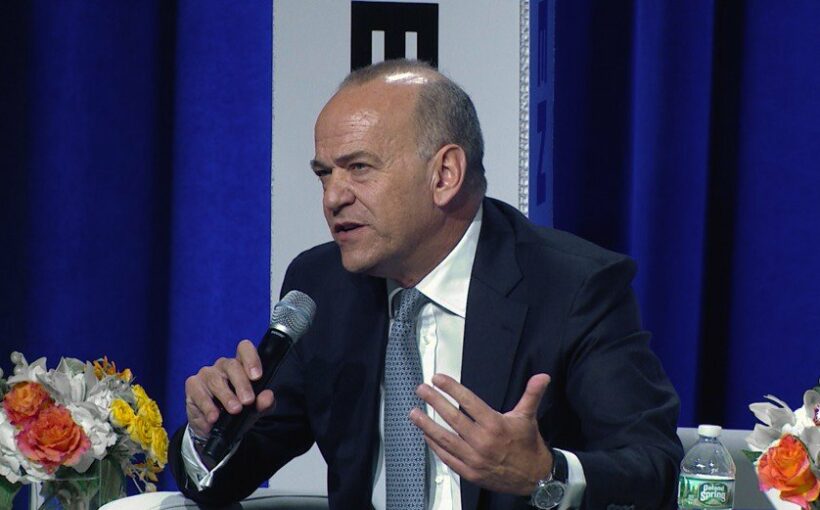Gibraltar is vying to become a crypto blockchain hub with it recently establishing a new working group to update its regulatory framework.
We spoke to Gibraltar’s Minister for Digital and Financial Services, The Hon Albert Isola MP, to find out more.
What does the minister aim to achieve with this working group, how does he hope to strike a balance between fostering innovation while minimizing risk?
Albert Isola: The working group behind the Gibraltar Market Integrity Study will be primarily responsible for defining the appropriate market standards for exchanges operating in the digital asset space.
Currently, the [Decentralized Ledger Technology (DLT)] framework includes nine principles that apply to DLT businesses operating in Gibraltar — the working group will deliver the 10th Core Principle of the jurisdiction’s bespoke regulatory framework.
Our goal is to define global market integrity standards for exchanges and other marketplace platforms in the space, while considering the recently defined standards by the UK, EU, and other international bodies.
In January 2018, Gibraltar became one of the first jurisdictions to introduce a regulatory framework for DLT providers. Since then, we have sought to strike a balance between facilitating innovation and meeting regulatory requirements. This continues to be a top priority for us.
Bringing regulators and the DLT community together is essential to the industry’s sustained success. Maintaining clear communication between regulators and innovators is of the utmost importance and will ensure we create a robust and open ecosystem that delivers on the objectives of all concerned.
Jurisdictionally attracting crypto businesses is becoming competitive, why should they choose Gibraltar over say Seychelles?
Gibraltar has introduced numerous business-friendly policies, including one of the most effective and respected regulatory e-gaming regimes.
Gibraltar prides itself in balancing a strict but reasonable licensing process to safeguard reputation with a competitive offer, favourable taxation, and banking infrastructure to support the sector.
This legal framework has attracted renowned industry names to our country and made Gibraltar one of the largest e-gaming hubs in the world.
The same can be said for [Virtual Assets Service Providers] VASP’s. Gibraltar has been a leader when it comes to fostering innovation and furthering the adoption of blockchain technology on a global scale and we are confident the delivery of the 10th Core Principle will aid us even further in our mission to achieve this.
Aside from this, Gibraltar is small, agile, and entrepreneurial in spirit. These three things that small territories have, perhaps through necessity, is what is driving us to innovate and lead in many areas.
Smart money, including institutional investors and potentially corporate treasuries, are more and more taking notice of bitcoin with several traditional financial market operators beginning to offer crypto-related services, does the minister see any role for the government in these developments?
That is certainly true. Indeed, Bitcoin’s latest bull run and the swell of institutional interest in the blockchain and crypto industry is evidence of this.
From a government perspective, there are at least 45 central banks around the world that have expressed their interest in developing Central Bank Digital Currencies (CBDCs). This highlights the appetite amongst businesses and governments to embrace emerging technologies and move to more efficient and transparent processes.
There is an important role for governments to play in this. Bringing together leading experts from different countries and industries — be it DLT and VASP’s, legacy institutions, regulators, government bodies, and watchdogs — is essential if we are to move the industry forward.
By opening the dialogue, governments, regulators, and enterprise can work together to ensure that the market is regulated and trustworthy. This way regulators trust in the technology, while those involved in the creation and use of the technology can enjoy the immense benefits it brings.
Where exchanges are concerned there have been stricter and stricter requirements, does the minister worry this might create a barrier to entry?
Maintaining high barriers to entry through regulation is critical as we move to attract the highest quality companies to operate in the DLT space.
The DLT industry operates in a fast-paced and ever-evolving regulatory landscape and, as a result, it is increasingly important that regulators remain up to date with global developments within the space.
If we are to achieve mainstream adoption, the regulation of the industry (including cryptocurrencies and exchanges) must be equal to that of the wider financial services industry.
Finally, is Gibraltar following the regulatory approach of US or of Europe?
Gibraltar is globally renowned for its commitment to creating a sustainable and secure regulatory framework for blockchain, as well as being one of the leading proponents in the advancement of the technology.
As a small jurisdiction, we have used this agility to our advantage, becoming the first jurisdiction to introduce legislation around DLT in January 2018.
While the US has taken a stricter regulatory approach, Europe has long been touted as a leader in the space.
Neither has chosen to mirror Gibraltar’s regulatory framework but undoubtedly as the industry grows, even if only as a consumer protection measure, regulation is something that will be considered. We see MICAR in the EU and public consultation in the UK, the Bitlicense in the US as steps in the process.
We have always reached out to the international community and will continue to do this. For example, joining the Global Blockchain Business Council (GBBC) and INATBA is testament to our continued search for development and understanding.
Source: Read Full Article
